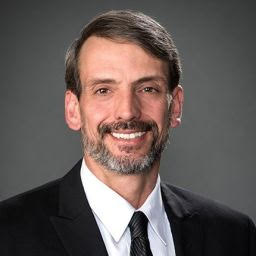Recently there has been a national conversation regarding the acceptability of college courses that are considered to be “too” difficult. Well-respected Professors have been fired because their classes are too “hard”. I disagree. Challenging classes are an essential experience to succeed later in life. At an early age, we are conditioned to pass classes with a letter grading system ranked A-F. The understanding that a grade below 65% is a failure indicative of how the “real world” works, though I, myself, have fallen into this trap before.
I took some darn hard classes while I was working towards my Bachelor’s Degree in Aerospace Engineering at Embry Riddle Aeronautical University (Class of 1994) in Prescott, AZ. While some did follow the conventional letter grading system, I quickly learned that it would not be so simple when pursuing higher education in science. I had one class taught by a professor who challenged us with seemingly impossible tests. In fact, he let us know on the first day: NO ONE would ever pass his tests. True to his promise, after we took the first exam of the semester, he went so far as to staple drop slip forms to the results he handed back. As I recall, the average score was around 40%. Sure enough, some students dropped this class immediately.
Before attending college, I always prided myself on being a straight-A student. But my grade after this initial exam made me lose my ever-loving mind! I couldn’t understand how this professor could expect me to ever become a great engineer or design spacecraft if he couldn’t teach me well enough to pass his darn tests. Today, I’m sure I would have jumped on a bandwagon of students that would have called for his dismissal for being deemed an ineffectual teacher.
But there’s more to my story. Faced with extreme stress, I went to the professor’s office to figure out what the heck was going on. This professor was known for being direct– all business, but fair. He explained to me that in the real world of science (and life), sometimes problems are hard. In life, there is no A – F grading system. His advice to me was to study hard and show my work when I took his tests.
I wasn’t sure what to make of this conversation, and I was still seriously considering dropping his class. As the semester went on, the tests only got tougher, but interestingly, the grades (at least for me) got better. I still failed most of his exams, but my scores started to improve. I did what he said: I studied harder and made more of an effort to show my work on the problems.
Soon I came to a critical realization: Along with the material, what he was teaching the class was that sometimes it’s not about finding the right answer, but about training your mind to work to think critically when faced with a problem. This required thinking out-of-the-box and honing our minds to approach challenges with unique ways of thinking. Engineers become great, not by solving cookie-cutter problems with simple answers, but by learning to be great thinkers.
This approach to problem-solving has served me well, not just in my career at NASA, but as CEO of my current company. When I hire someone, I am not looking for an A-F type of person but a critical thinking problem solver. It is important to note this also applies to all aspects of life in general. We live in a complicated world of business and personal relationships where sometimes the answer isn’t so black and white. I hope today’s students take this life lesson to heart.
___________________________________________________________________________________________________________________

William Choppa is the CEO of Eracent, and member of the Board of Directors, William is leading the organization, recruiting and developing strong leaders in various functional roles, and communicating Eracent’s vision to co-workers, current and future customers, and the larger ITAM community. Since joining the company in 2004, he has been passionate about the evolution and refinement of Eracent’s solutions, based on lessons learned from working with customers and partners.
Prior to joining Eracent, William was President of MCSI, a management consulting practice offering deployment and customization services. He has held positions with IBM and a number of technology companies as well as the National Aeronautics and Space Administration. William holds a BS in Aerospace Engineering from Embry Riddle Aeronautical University.






